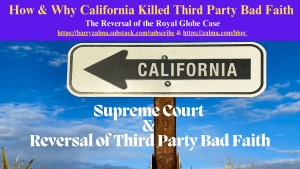Is Colonial Penn a whole life insurance policy?
Is Colonial Penn a whole life insurance policy?
Colonial Penn’s guaranteed acceptance program is a whole life insurance policy with a limited death benefit, and is often marketed to seniors who want to reduce their family’s financial impact upon their death. Jan 31, 2022
Why whole life insurance is a waste of money?
Policygenius reports that whole life insurance can cost six to 10 times more than a comparable term policy. That greatly increases the odds that you won’t be able to afford your premiums at some point down the line. If that happens, you may have no choice but to drop your coverage, leaving your loved ones vulnerable. Feb 10, 2020
Do you ever stop paying premiums on whole life insurance?
Unlike term insurance, whole life policies don’t expire. The policy will stay in effect until you pass or until it is cancelled. Over time, the premiums you pay into the policy start to generate cash value, which can be used under certain conditions.
What are the downsides of whole life insurance?
The main disadvantage of whole life is that you’ll likely pay higher premiums. Also, you’re likely to earn less interest on whole life insurance than other types of investments. Oct 25, 2021
How long does a whole life insurance policy last?
What is whole life insurance for? Whole life insurance is designed to last your entire life without expiring (although some policies simply pay out at age 100). Your whole life premiums will likely be higher than rates for a term life policy, but they will stay the same for as long as the policy is in force.
Does AARP offer whole life insurance?
AARP life insurance policies The AARP program features permanent and term life insurance with simplified underwriting, which means applicants answer health questions but do not have to undergo a medical exam to qualify. The program also offers whole life insurance with guaranteed acceptance for everyone. Dec 21, 2021
What is the difference between whole life and term life insurance?
Term life insurance provides coverage for a set period of time, typically between 10 and 30 years, and is a simple and affordable option for many families. Whole life insurance lasts your entire lifetime and also comes with a cash value component that grows over time.
Do whole life policies increase in value?
Whole life insurance works as a permanent policy that builds cash value over time. As long as the premiums are current, the policy remains active for the entire life of the policyholder, and beneficiaries will receive a set death benefit upon the insured’s death. Mar 17, 2022
Is life insurance needed after 60?
If you retire and don’t have issues paying bills or making ends meet you likely don’t need life insurance. If you retire with debt or have children or a spouse that is dependent on you, keeping life insurance is a good idea. Life insurance can also be maintained during retirement to help pay for estate taxes.
At what age should you stop term life insurance?
age 95 Most modern term life insurance policies do not expire until you reach age 95. Even though you may have a 10-year term life policy, your coverage will not end after 10 years.
What is the best age for life insurance?
Your 20s are the best time to buy affordable term life insurance coverage (even though you may not “need it”). Generally, when you’re younger and healthier, you pose less risk to an insurer, which is why you’re offered the most affordable rates.
How long does it take for whole life insurance to build cash value?
You should expect at least 10 years to build up enough funds to tap into whole life insurance cash value. Talk to your financial advisor about the expected amount of time for your policy. Jul 28, 2021
What reasons will life insurance not pay?
If you die while committing a crime or participating in an illegal activity, the life insurance company can refuse to make a payment. For example, if you are killed while stealing a car, your beneficiary won’t be paid. Feb 18, 2022
What happens to cash value in whole life policy at death?
Whole life insurance is a type of permanent life insurance. When you pay your premium, part of the money goes toward the death benefit. The rest of the money goes into a savings account, making up your policy’s cash value. This cash value grows over time, and you may be able to access this amount during your lifetime. Nov 4, 2021
What does Suze Orman say about whole life insurance?
Suze believes that when whole or universal life insurance is looked at as a savings tool instead of just an insurance policy, the money that is contributed to a whole or universal life insurance policy could be earning a better rate of investment return elsewhere.




